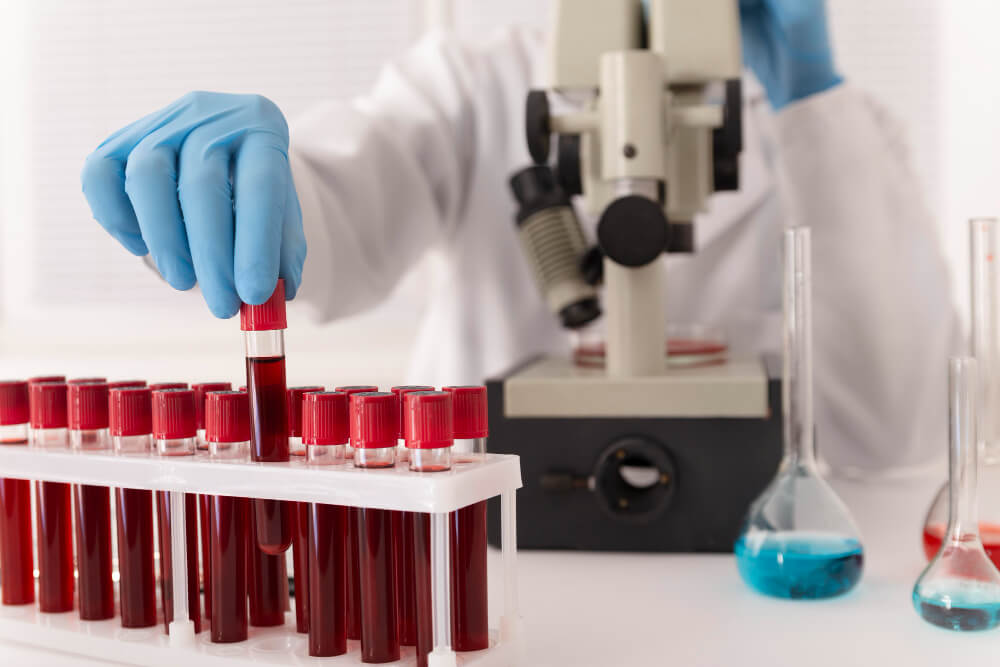The Importance of HIV Testing: Know Your Status
HIV, the human immunodeficiency virus, is a chronic and potentially life-threatening infection that attacks the immune system. Early detection through regular HIV testing is essential for accessing timely treatment and preventing the transmission of the virus.

Understanding HIV
HIV is a sexually transmitted infection that can also be spread through blood-to-blood contact and from mother to child during pregnancy, childbirth, or breastfeeding. The virus gradually weakens the immune system, making individuals susceptible to opportunistic infections.
Stages of HIV Infection The progression of HIV infection is divided into three stages:
Acute HIV infection: The initial stage, characterized by flu-like symptoms.
Chronic HIV infection (asymptomatic stage): The virus continues to multiply but without noticeable symptoms.
Acquired Immunodeficiency Syndrome (AIDS): The final stage when the immune system is severely compromised.
The Importance of HIV Testing
Regular HIV testing is crucial for several reasons:
- Early Detection Early diagnosis allows for immediate treatment, preventing the progression of the disease and reducing the risk of transmission.
- Access to Care People living with HIV can access essential medical care, including antiretroviral therapy (ART).
- Prevention Knowing one’s HIV status empowers individuals to make informed decisions about sexual health and risk reduction.
Who Should Get Tested for HIV?
Anyone who is sexually active should consider getting tested for HIV, regardless of sexual orientation or gender identity. Other individuals at increased risk include:
- People who share needles or syringes to inject drugs
- Individuals with multiple sexual partners
- Men who have sex with men
- People with other sexually transmitted infections
Types of HIV Tests
Several types of HIV tests are available:
- Antibody Tests Detect antibodies produced by the immune system in response to HIV infection.
- Antigen/Antibody Tests Detect both HIV antibodies and antigens (viral proteins).
- Nucleic Acid Tests (NATs) Directly detect the HIV virus in the blood.
HIV Treatment

Antiretroviral therapy (ART) is highly effective in managing HIV infection:
- Benefits of ART ART suppresses the virus, preventing HIV from progressing to AIDS.
- Treatment as Prevention (TasP) ART can also prevent HIV transmission when taken consistently by HIV-negative individuals at high risk.
- Adherence to Treatment Regularly taking ART as prescribed is crucial for its effectiveness.
Preventing HIV Transmission
To prevent the spread of HIV, it’s essential to practice safe sex:
- Consistent Condom Use Using condoms correctly and consistently during all sexual encounters.
- Getting Vaccinated The HPV vaccine can help prevent certain types of HPV, which can increase the risk of HIV transmission.
- Reducing Sexual Partners Limiting the number of sexual partners can lower the risk of exposure.
Seeking Support and Counseling
Living with HIV can be challenging, but support is available:
- HIV Support Groups Connecting with others who are living with HIV can provide emotional support.
- Counseling and Mental Health Services Addressing the psychological impact of HIV.
- Patient Advocacy Organizations Advocating for the rights and needs of people living with HIV.
By prioritizing HIV testing, early diagnosis, and appropriate treatment, individuals can significantly reduce the impact of HIV infection and improve their overall health and well-being.
